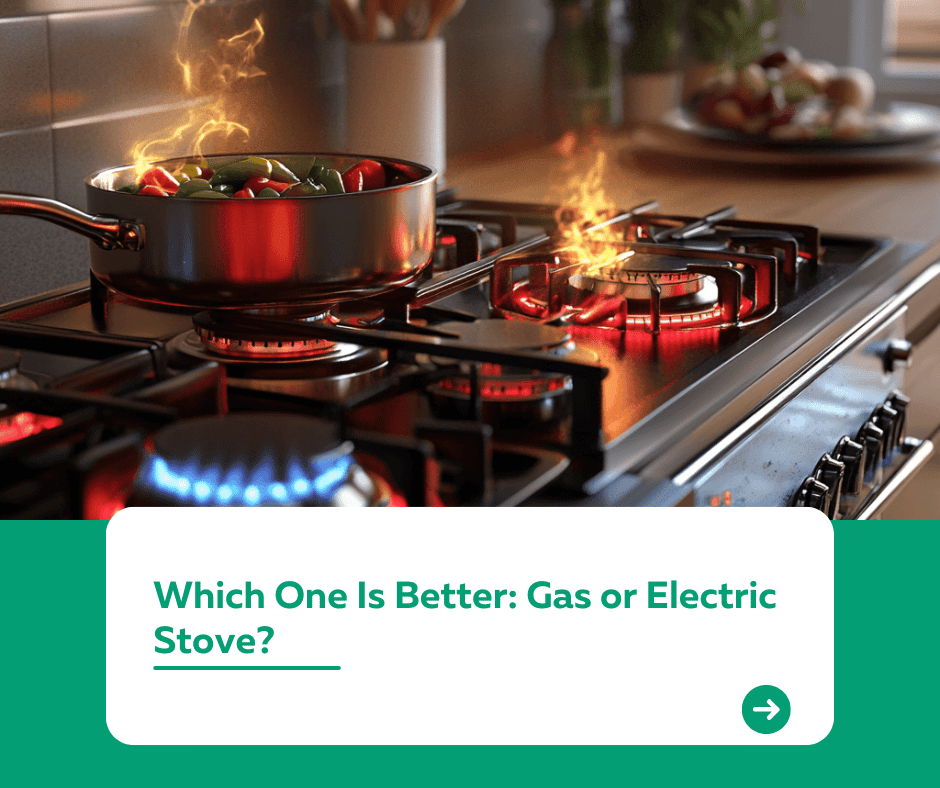
Introduction
Choosing between a gas or electric stove can significantly impact your cooking experience. Which one is better: a gas stove or an electric stove? Both have unique benefits and drawbacks, and the best choice depends on your cooking habits, kitchen setup, and personal preferences. Let’s explore the pros and cons of each to help you make an informed decision.
1. Gas Stove
Advantages
1️⃣ Precise Temperature Control: Gas stoves offer instant heat adjustments, ideal for recipes requiring precision.
2️⃣ Even Heat Distribution: Flames spread evenly under the cookware, preventing hot spots.
3️⃣ Cost-Effective Operation: Gas is often cheaper than electricity in the long run.
4️⃣ Works During Power Outages: Reliable even without electricity.
Disadvantages
- Installation Requirements: Needs a gas line, which may not be available in all homes.
- Safety Concerns: Risks of gas leaks and open flames require careful usage.
- Cleaning Challenges: Grates and burners can be difficult to clean.
Best For
Home cooks who value precise heat control and cook diverse dishes regularly.
2. Electric Stove
Advantages
1️⃣ Ease of Cleaning: Smooth, flat surfaces are easier to clean than gas burners.
2️⃣ Modern Design: Sleek, minimalist look enhances the aesthetics of a modern kitchen.
3️⃣ Consistent Heat: Ideal for slow cooking and maintaining steady temperatures.
4️⃣ Energy Efficiency: Some models are more efficient than gas stoves.
Disadvantages
- Slower Heat Adjustments: Takes longer to heat up and cool down.
- Power Dependence: Becomes non-functional during power outages.
- Limited Cookware Compatibility: Certain models require flat-bottomed cookware.
Best For
Those who prioritize ease of cleaning, energy efficiency, and modern design.
3. Key Comparisons
| Feature | Gas Stove | Electric Stove |
|---|---|---|
| Heat Control | Precise and instant | Slower adjustments |
| Installation | Requires gas line | Requires electrical outlet |
| Cleaning | More effort required | Easy to clean |
| Design | Traditional look | Sleek, modern appearance |
| Operating Costs | Lower long-term costs | Higher operating costs |
4. Which One Should You Choose?
Choose a Gas Stove If:
- You often cook recipes requiring precise heat control.
- Your home already has a gas line installed.
- You want a stove that works during power outages.
Choose an Electric Stove If:
- You value ease of cleaning and a sleek design.
- You frequently cook dishes requiring consistent low heat.
- You prefer a modern look for your kitchen.
Conclusion
The decision between a gas and electric stove ultimately comes down to your cooking preferences, budget, and kitchen setup. Both options have their unique advantages, so consider your needs carefully before making a choice. For more kitchen tips and advice, visit our Keustion.com.